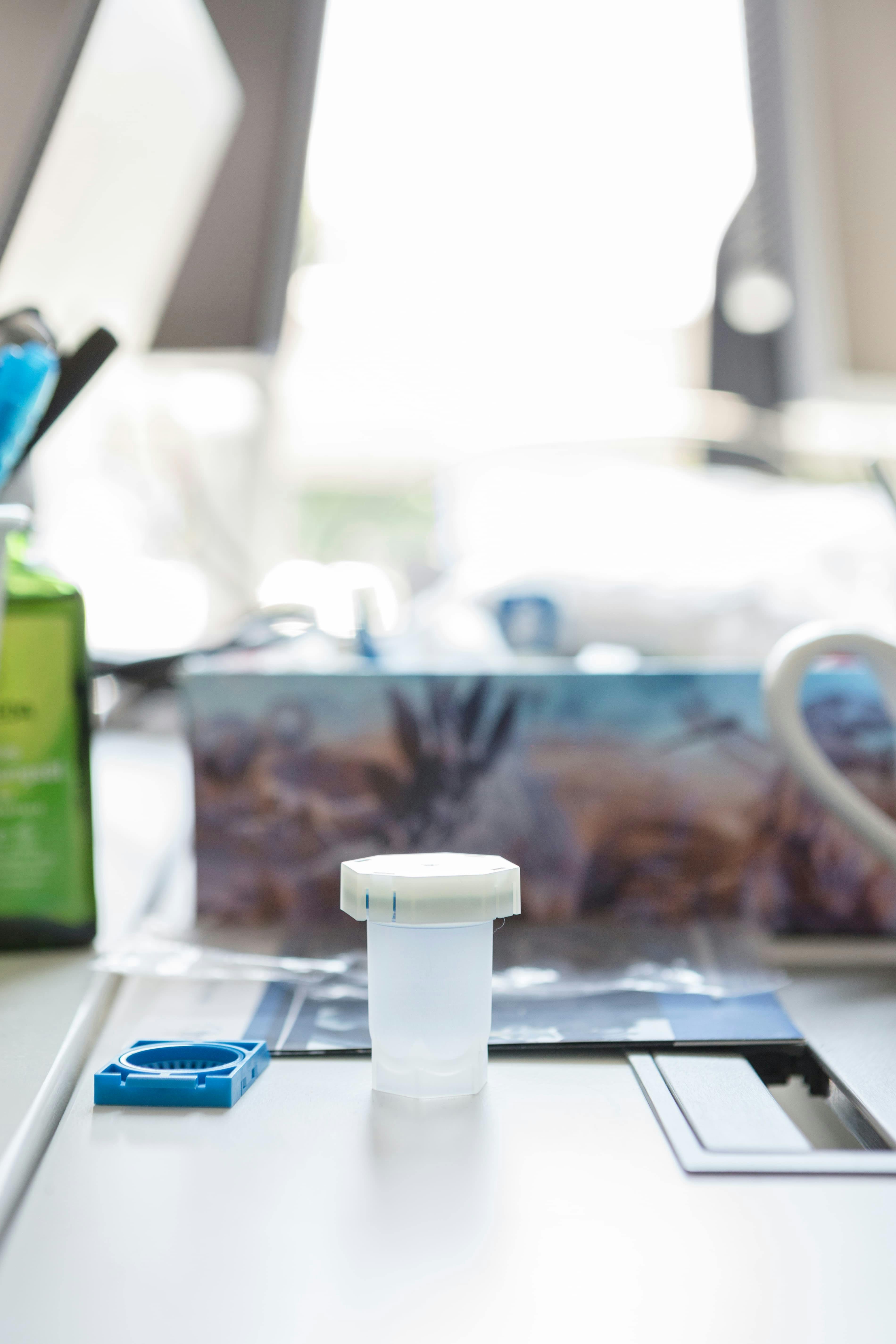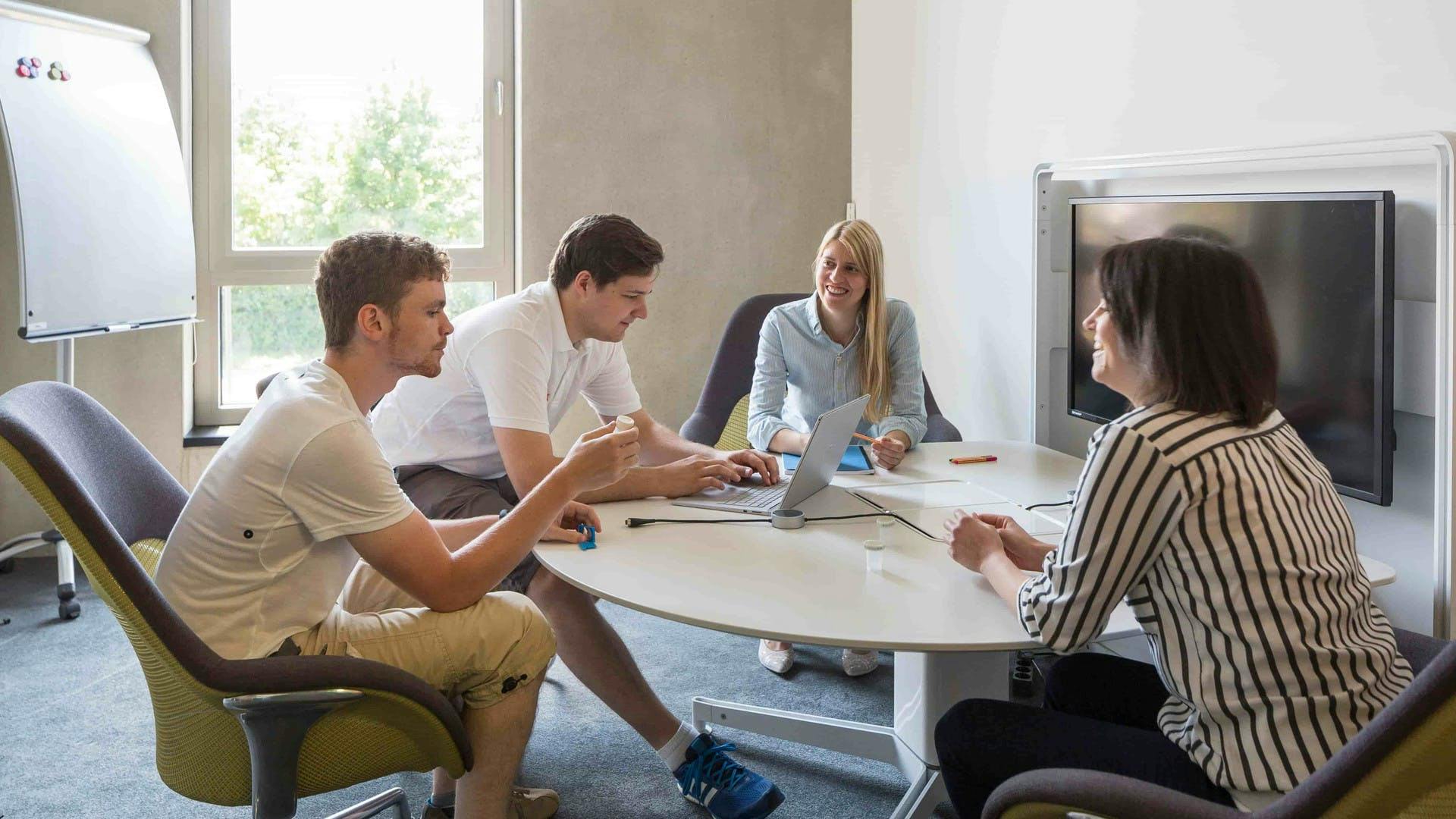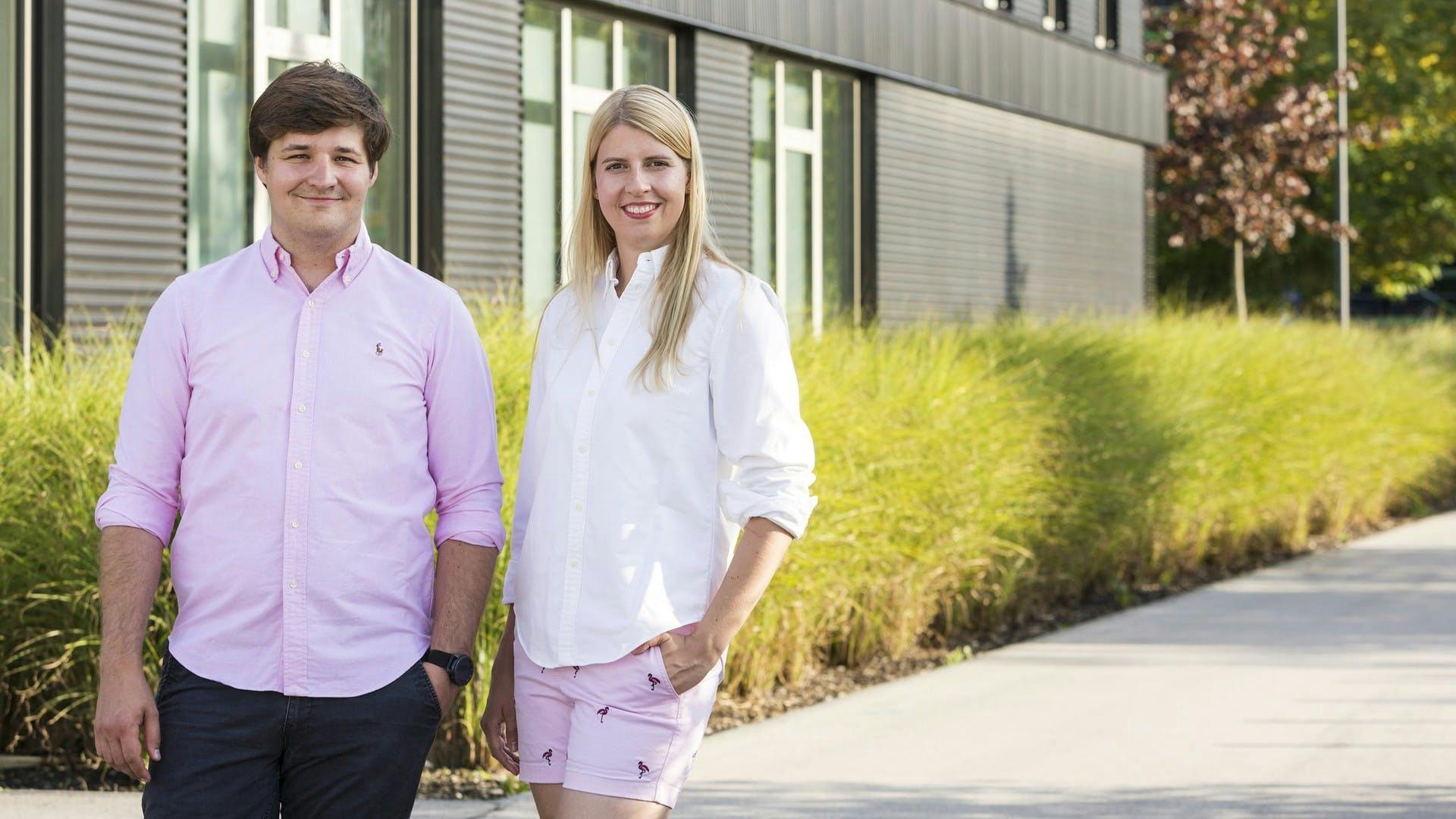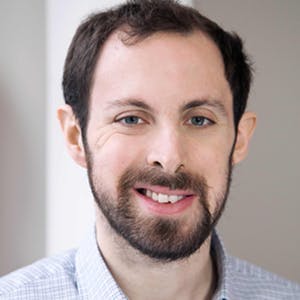"An impact company": Meet the founders striving to make cancer diagnosis more accurate
f you’re interested in innovating for the medical area, you might want to hear how the founders of medtech startup, inveox, went about it when they launched their business two years ago.
The founders of inveox, Maria Sievert and Dominik Sievert, are passionate about helping people and making cancer diagnosis more accurate and efficient.
In a recent interview, Maria and Dominik told us a bit more about their Munich-based company and why they were inspired to launch it.
They also revealed some of the challenges they faced throughout their journey, such as the difficulty in raising money as a hardware startup and addressing a topic that’s not as well-known or easy to explain.
Ultimately, they think the medical area is ripe for innovation – and the way forward involves openness between the disciplines of tech and medicine.

Photo: Startup Guide
For the non-pathologists among us, what does inveox do exactly?
Maria: We automate pathology labs, namely in the field of histopathology. Whenever any biopsy sample is taken – it can be anything from a colonoscopy to a liver spot – it has to be sent to histopathology so that a pathologist can make the right diagnosis. We’ve created software that connects the right samples to the right patients and lab orders. This helps make it so data is entered accurately. Also, we have a new sample container – a little barcoded vessel with an integrated filter – and then we have the machine that does the job of the sample entry. We aim to make sure that there are no errors or irregularities, like losing or mixing up data or losing the sample. We also make the process way more efficient.
We're not your average company... our employees come to us because they also want to change something.
Dominik: What I think is important, and why many of our team members start working with us, is that we’re not your average company. We put lots of trust in our employees, who came to us for a reason – because they also want to change something and because they may have had similar experiences in their families. This is more of an impact company. It heavily influences how we approach things.
What inspired you to found the company?
Dominik: I come from a medical and biomedical background and was part of a program in Munich that’s very similar to Stanford’s Biodesign program. I observed a couple of surgeries, and during one of them there were irregularities, which for me was somewhat eye-opening because many of the drugs being prescribed actually rely on a specific diagnosis. Yet you can't be certain that it's actually the sample of the person you want to treat. This reality check on what’s being done in clinical practice was my starting point.
Maria: At the same time, I was in the US attending a business-planning class, and I was just looking for an idea. I asked a pathologist what their biggest problem was, and he told me that samples are sometimes mixed up in their lab. I took a look at the process and the lab and thought, “We can track our Amazon packages, but we cannot make sure that we’re using the right sample for the right patient at the right time.” I came up with the very first idea that this could be digitalized and automated, and then I came back to Germany and met Dominik, and we started on our journey.
What are some of the struggles you faced in creating inveox?
Maria: Two important factors for founding a successful startup are the team and the money. We had to learn how to raise money for a topic like hardware and medtech. We had to learn how to be self-confident and show off the great product we had. This was one of the first challenges. The second was to find the right people. It was a lot of fun to build the team we have now, but it was also a challenge, because you have to define what kind of company you want to be and what people you're looking for.
Dominik: On top of that, you need some sort of plan or approach on how to present yourself to future team members and investors. You need to know how to address a topic that’s not super popular or that needs a lot of explanation. There’s a misunderstanding of what a pathologist actually does. Pathology is behind every cancer diagnosis, and if you present this right, people realize it’s important and they want to be involved.

Maria and Dominik speaking with colleagues. Photo: Startup Guide
What’s the experience been like being in the Munich startup ecosystem?
Maria: It’s perfect for any high-tech startup. You have an absolutely great network, from founders and innovation campuses to big companies such as BMW, which help the startup scene a lot. Then you have a bunch of researchers and very qualified employees, and coworking spaces like MakerSpace that are awesome for when you want to build hardware.
There is huge potential in the medical area... it's opening up for innovation.
Dominik: In the startup scene in Munich, there are more events and more accelerator programs even in our area than ever before, such as the Digital Health Accelerator from Roche Diagnostics and Plug and Play. Also, there are the startups that have already made it or almost made it, who can share a lot of expertise, knowledge, contacts and how-tos with those in the founding phase right now. Everyone has learnings they can pass on to others, and I think that’s something Munich is quite good at.
What have you learned as founders at the intersection of tech and medicine?
Maria: There is huge potential in the medical area. At this time, the medical area is sort of opening up for innovation. We have a great understanding of what’s possible with technology from other industries, and the medical area is becoming more open to use that potential to help patients and the healthcare system. It was a surprise how much potential there is in some medical areas, because it may or may not be very developed from a process and technology standpoint. We want to make people aware of what’s happening in medical technology and how important it is.
After working in medtech, are there changes you hope to see in the industry?
Dominik: Something we want to work toward is having openness between different disciplines. This is not just about doctors from different expertise coming together and doing what’s best for the patient; it’s also about doctors talking to IT people, for example, and about drawing more knowledge out of each other and combining it.
Maria: We can’t expect doctors to use iPads and computers and smartphones for their work if they don’t have one single class covering that when they get trained. It’s something that has to change in the mindset of the disciplines working together, to create an understanding of how useful that could be.
This interview was originally published in Startup Guide Munich Vol. 2.
Main photo of Maria and Dominik by inveox

